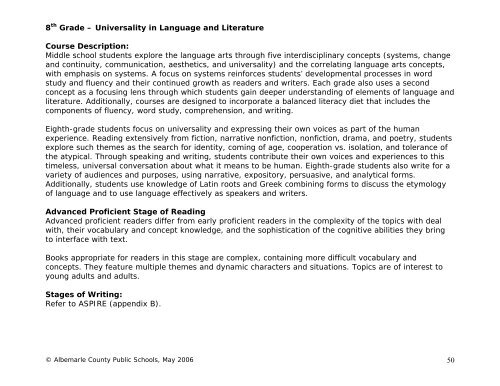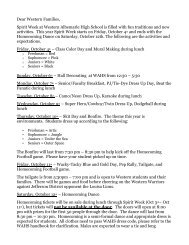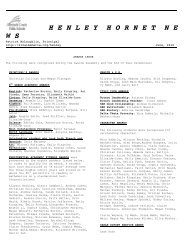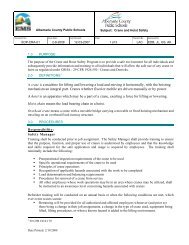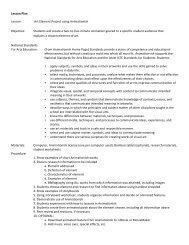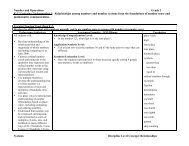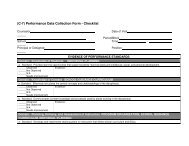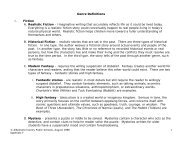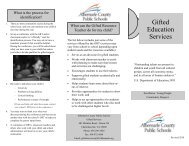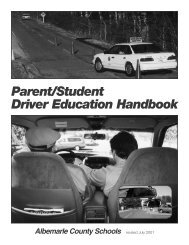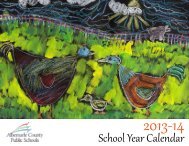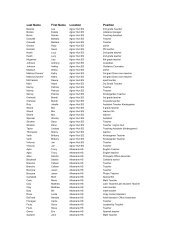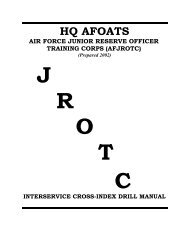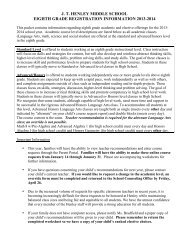Language Arts/English Curriculum Frameworks - Albemarle County ...
Language Arts/English Curriculum Frameworks - Albemarle County ...
Language Arts/English Curriculum Frameworks - Albemarle County ...
You also want an ePaper? Increase the reach of your titles
YUMPU automatically turns print PDFs into web optimized ePapers that Google loves.
8 th Grade – Universality in <strong>Language</strong> and Literature<br />
Course Description:<br />
Middle school students explore the language arts through five interdisciplinary concepts (systems, change<br />
and continuity, communication, aesthetics, and universality) and the correlating language arts concepts,<br />
with emphasis on systems. A focus on systems reinforces students’ developmental processes in word<br />
study and fluency and their continued growth as readers and writers. Each grade also uses a second<br />
concept as a focusing lens through which students gain deeper understanding of elements of language and<br />
literature. Additionally, courses are designed to incorporate a balanced literacy diet that includes the<br />
components of fluency, word study, comprehension, and writing.<br />
Eighth-grade students focus on universality and expressing their own voices as part of the human<br />
experience. Reading extensively from fiction, narrative nonfiction, nonfiction, drama, and poetry, students<br />
explore such themes as the search for identity, coming of age, cooperation vs. isolation, and tolerance of<br />
the atypical. Through speaking and writing, students contribute their own voices and experiences to this<br />
timeless, universal conversation about what it means to be human. Eighth-grade students also write for a<br />
variety of audiences and purposes, using narrative, expository, persuasive, and analytical forms.<br />
Additionally, students use knowledge of Latin roots and Greek combining forms to discuss the etymology<br />
of language and to use language effectively as speakers and writers.<br />
Advanced Proficient Stage of Reading<br />
Advanced proficient readers differ from early proficient readers in the complexity of the topics with deal<br />
with, their vocabulary and concept knowledge, and the sophistication of the cognitive abilities they bring<br />
to interface with text.<br />
Books appropriate for readers in this stage are complex, containing more difficult vocabulary and<br />
concepts. They feature multiple themes and dynamic characters and situations. Topics are of interest to<br />
young adults and adults.<br />
Stages of Writing:<br />
Refer to ASPIRE (appendix B).<br />
© <strong>Albemarle</strong> <strong>County</strong> Public Schools, May 2006 50


